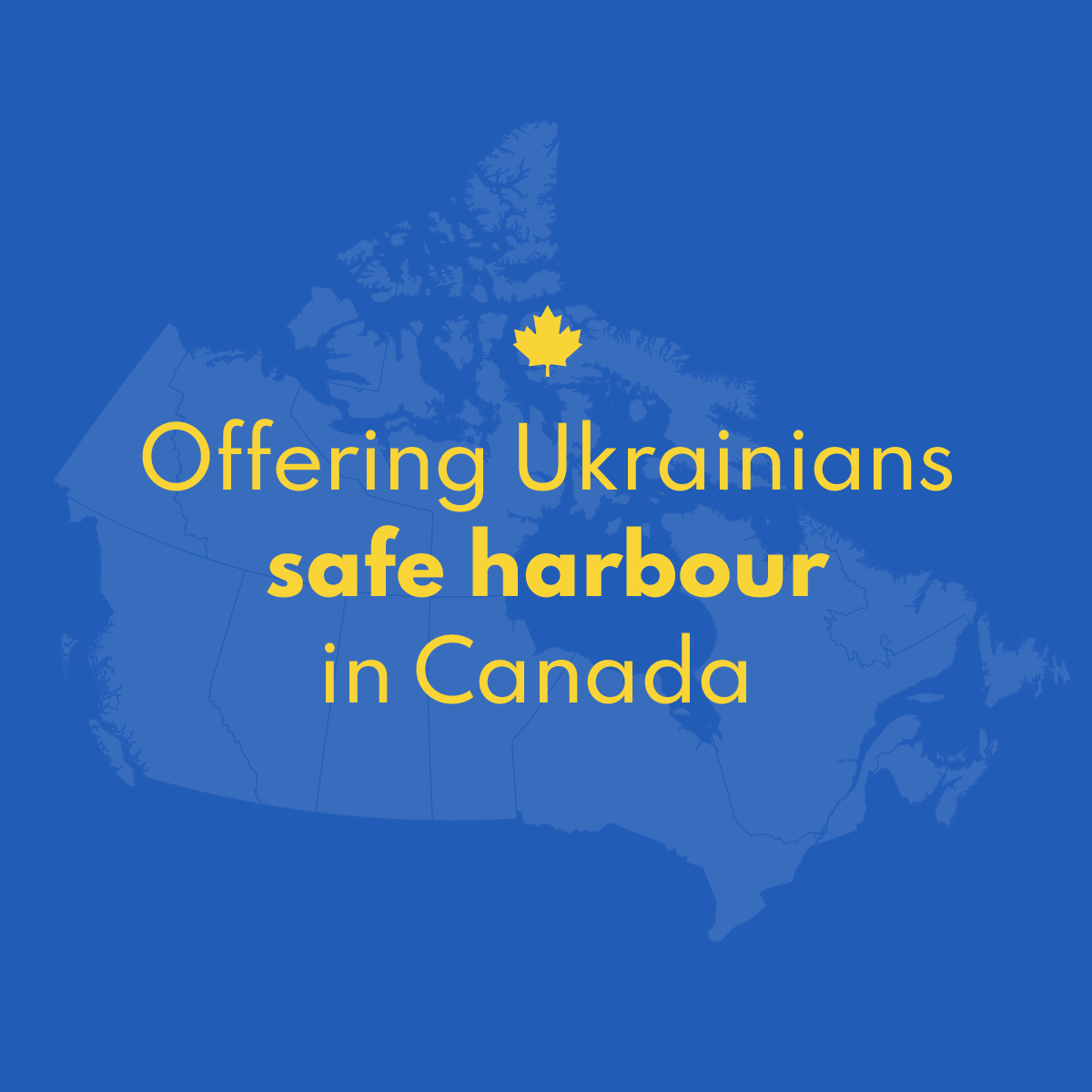The resiliency and courage of Ukrainians have inspired the world, and Canada is unwavering in its commitment to provide support to Ukraine as it fights for its sovereignty and for the democratic ideals that our countries share.
In response to Vladimir Putin’s full-scale invasion of Ukraine, the Honourable Sean Fraser, Minister of Immigration, Refugees and Citizenship, today announced the launch of the Canada-Ukraine authorization for emergency travel (CUAET). The CUAET is a special, accelerated temporary residence pathway for Ukrainians seeking safe haven in Canada while the war in their home country continues.
With the CUAET, Ukrainians and their immediate family members of any nationality may stay in Canada as temporary residents for up to 3 years. Applicants who are overseas need to apply online for a Canadian visitor visa and provide their biometrics (fingerprints and a photo). Applicants are encouraged to apply for a 3-year open work permit at the same time as their visa application. This permit will allow them to work in Canada. Under this special program, many of the regular requirements associated with a normal visitor visa or work permit have been waived. Elementary and high school students can register for and start attending school as soon as they arrive in Canada, and anyone looking to study at the post-secondary level can apply for a study permit once on Canadian soil.
Applicants who do not have a valid passport may still apply, and Immigration, Refugees and Citizenship Canada (IRCC) will issue a single journey travel document on a case-by-case basis, where appropriate.
Ukrainian workers, students and visitors and their family members who are already in Canada also benefit from these measures. They may either apply to extend their visitor status or work permit for 3 years, apply for a new work or study permit, or extend their existing permit. IRCC will waive all extension and work or study permit application fees.
To ease the burden on applicants, IRCC is waiving all application fees for these programs.
The Government of Canada is also calling on employers who wish to support Ukrainians with offers of employment to register these offers on Job Bank’s Jobs for Ukraine webpage. Job Bank will then work with local organizations and employers to help connect them with Ukrainians seeking work in their communities. We are also in discussions with partners, including provinces and territories, the business community, the Ukrainian-Canadian community and settlement organizations, on how best to support those arriving from Ukraine, and more information will be available soon. IRCC will continue to monitor volumes of travellers and their needs closely and will take action as required.
We are working around the clock to help Ukrainians and their families get to Canada as quickly and as safely as possible. We are already prioritizing and fast-tracking applications, and waiving application and processing fees. We have increased our operational capacity in the region, in anticipation of an increased volume of requests. This includes relocating staff and moving additional supplies and equipment, such as mobile biometric collection kits. We are also adjusting operations in offices across our global network to ensure service continuity for Ukraine.
Ukrainians and their family members are exempt from Canada’s COVID-19 vaccination entry requirements. However, they must still meet all other public health requirements for travel, such as quarantine and testing. With limited exceptions, all travellers to Canada, including anyone arriving under the CUAET, must also use ArriveCAN.
The CUAET and Job Bank will be instrumental in supporting the Government of Canada’s response to Vladimir Putin’s brutal full-scale invasion of Ukraine. Most importantly, these measures help us do our part to welcome more Ukrainians to Canada.







Leave A Comment